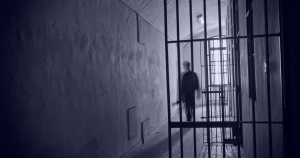Brussels – Rome, 19 May 2015
On 10 April 2015, the Tunisian Government submitted a draft Bill to the Parliament on the “Repression of Attacks against Armed Forces”. The draft legislation is intended to enhance protection of the armed forces – including military, internal security, and customs– and to repel attacks against facilities and objects. It has been prepared in response to the attack held at the Bardo Museum in Tunis on 18 March 2015 and a series of lethal attacks on the security forces by armed groups.
Further to its introduction before Parliament, the Tunisian Government has indicated that it intends to amend the initial draft to address significant concerns expressed by Tunisian political parties and unions of various provisions that would have limited accountability and oversight and restricted civil liberties.
Statement by Niccolò Figà-Talamanca, Secretary-General of No Peace Without Justice:
“The draft State Security Bill recently submitted by the Tunisian Government to the Parliament has raised strong concerns. Some of its troubling provisions awaken dark memories of the past and even contradict the ideals and principles that underpinned the Jasmine Revolution.
“No Peace Without Justice (NPWJ) and the Nonviolent Radical Party, Transnational and Transparty (NRPTT) welcome the Government’s commitment to amend the draft Bill and to ensure its consistency with the civil and political rights enshrined in the newly-adopted Tunisian Constitution and international human rights standards.
“It is, of course, important to ensure that the Tunisian security forces can carry out their duty to defend the public and the rule of law, particularly in an environment marred by increasing terrorism threats. But this cannot and should not be done at the expenses of democratic accountability and legal responsibility of State institutions towards the citizens they serve. The remarkable gains and progress in Tunisia has made in overcoming its undemocratic past is essential to its security: the effectiveness of the security forces response to terrorism hinges on the trust and respect it enjoys within the population it protects and society as a whole.
“Notably, the current draft Bill provides for criminal prosecution for “denigrating” security personnel intending to “harm public order”. This vague formulation undermines the crucial role of the media and civil society activists in criticising the conduct of police and other security forces and exposing any alleged wrongdoings or abuses. It also runs contrary to the right to freedom of expression guaranteed in the 2014 Constitution and international human rights norms.
“Equally troubling are the provisions that prohibit the filming of security forces operations, seemingly designed to protect the security forces not from terrorists, but from citizen journalists, the media and ultimately from public scrutiny, and the related provisions on the publication or even possession of insufficiently defined confidential information.
“Also requiring amendments are those provisions that immunise security forces from criminal liability in respect of the use of lethal force to counter threats to property, even where lives are not at risk. International law requires that the intentional use of lethal force by the police can only be used as a last resort to protecting human lives.
“The adoption of a new security law can be a testament of the Tunisian institutions’ commitment to respond through appropriate reforms to the best interests of all Tunisians, ensuring that security forces have the means and the authority to protect the population and themselves effectively and responsibly, while remaining accountable to the population they serve and the democratic institutions.
“While the current draft Bill does not satisfy these requirements, NPWJ and the NRPTT have every confidence that the Parliament and the Government of Tunisia will work together to ensure that the draft Bill is amended significantly to remove all provisions that restrict the freedoms the security forces should protect, and demonstrate their dedication to uphold the ideals and principles on which the new Tunisia was founded”.
For further information, Gianluca Eramo (MENA Democracy program Coordinator) on geramo@npwj.org or Nicola Giovannini (Press & Public Affairs Coordinator) on ngiovannini@npwj.org or +32-2-548-3915![]() +32-2-548-3915.
+32-2-548-3915.




